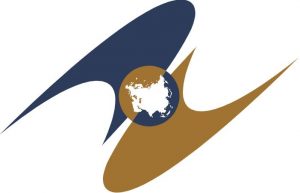During his state of the union address on January 24, Uzbekistan President Shavkat Mirziyoyev spoke about the Eurasian Economic Union (EAEU), among other matters. Without delving into specifics, he stated “the government is studying avenues to cooperate with the Eurasian Economic Union.”
Mirziyoyev rationalized this cooperation with the argument that economic integration is an evolution of economic development. “An open market means products of better quality, lower cost prices, natural demand for new technologies, and the development of market economy.” The president repeated a comment argument that, 80 percent of Uzbekistan’s products pass through the EAEU member countries – Kazakhstan, Kyrgyzstan, and Russia. “In addition,” he said, “the same countries are the final consumers of 50 to 80 percent of Uzbekistan’s exports.” He went on to add that “integration means better conditions for our migrants in Russia and Kazakhstan.”
Mirziyoyev’s comments certainly come across as an attempt to justify Uzbek inching toward the EAEU. But rather than single-handedly driving the process and being responsible for it, Mirziyoyev wishes to share the burden with the parliament, as the representatives of the people. “On this significant matter, we will consider the benefits of the nation and its will.”
“If they approve, we approve as well; if they disapprove, we will disapprove,” he said, going off-script. To this end, he instructed the Cabinet of Ministers to present a report evaluating consequences of the membership to the parliament for discussions and approval.
So far no Uzbek official, including the president himself, has spoken in public about the specifics of Uzbekistan in the union. Under the broad meaning of “cooperation,” as the president framed it, arguably lies either Uzbekistan’s eventual full membership or observer states, either as an end-state or a kind of pre-membership step. Nevertheless, there are reasons to conclude that Uzbekistan’s membership is just a matter of time.
Senior Uzbek officials in the past several months have been enthused over the prospect of Uzbekistan’s EAEU membership. The most recent is First Deputy Minister of Foreign Affairs Ilkhom Nematov who cited economic benefits and better conditions for labor migrants. Officials don’t discuss the possible negative aspects or political implications. According to a government report leaked a few days ahead of the president’s address, “the supreme leadership has already made a political decision. Uzbekistan will join the Eurasian Economic Union.”
The government will likely work on supporting industries that will be negatively affected by membership. In the same RFE/RL report as the leaked government memo, seven ministries outlined numerous negative aspects of membership. Specifically, Uzbekistan will be dependent on Russia to varying degrees for transportation, transit, manufacturing, energy, and subject to possible complications of economic and political freedom.
One of the restricting aspects will be a ban on purchasing medicine and medical equipment from non-EAEU countries, that will certainly drive up the prices. Uzbekistan relies on Ukraine, Germany and Israel for these items, but will be limited to pricier purchases from Kazakhstan and Russia. The other aspect would be uncompetitive confectionery products and home appliances from domestic producers that will be replaced by cheaper but higher quality products, primarily from Kazakhstan and Russia.
Although Mirziyoyev’s address indicated his support to moving toward the EAEU, he is not ready to state it so definitively. The leaked government report and Uzbek officials’ unified support of late to the idea of membership seem to point the way. However, before Tashkent makes the last step in this significant foreign policy decision, the president seems to want it to become the peoples’ decision through parliament.
































